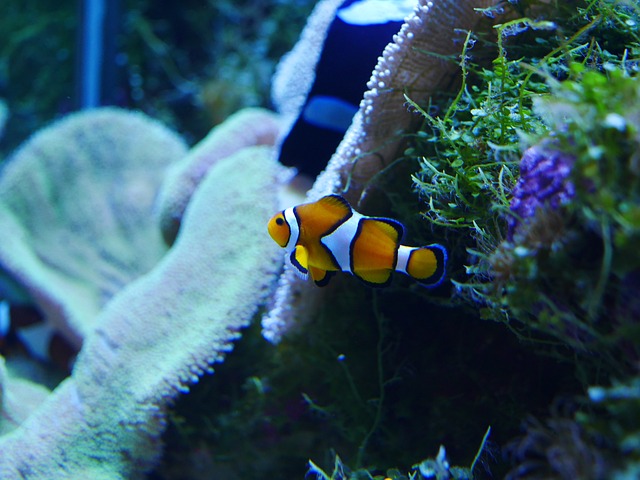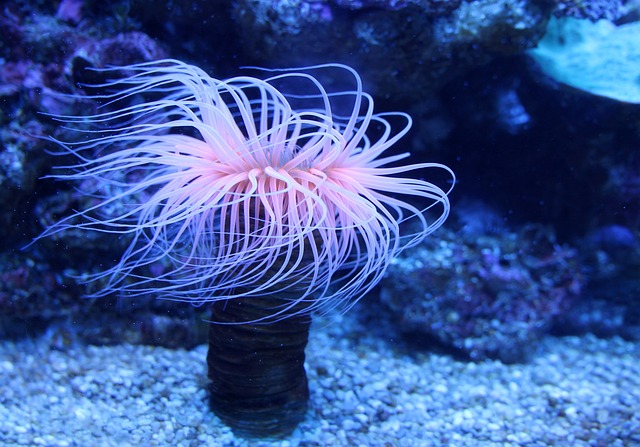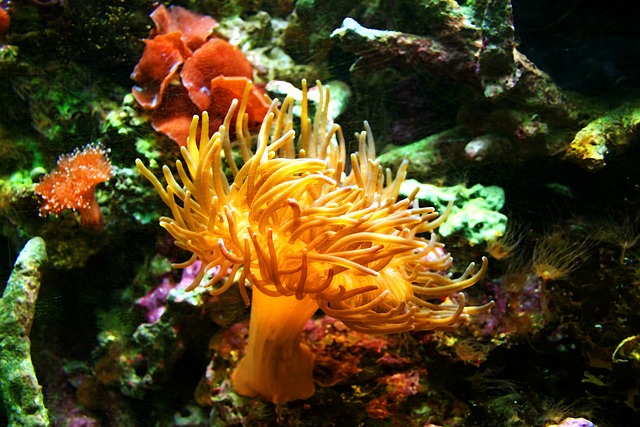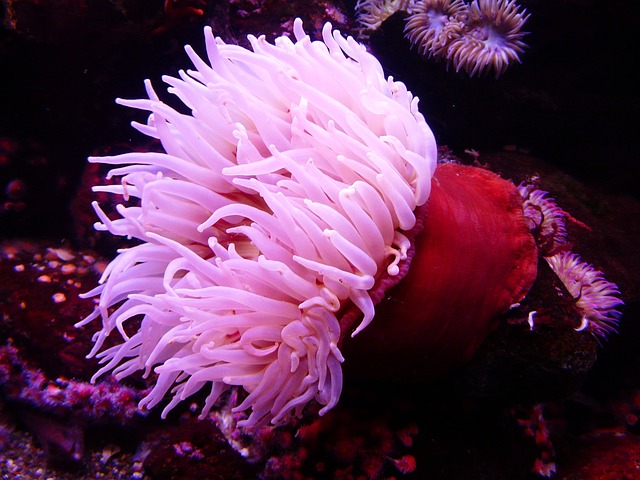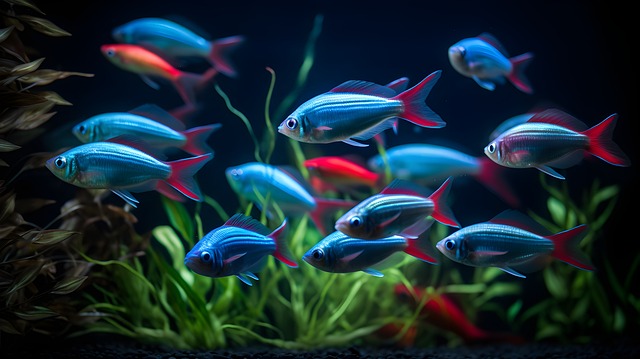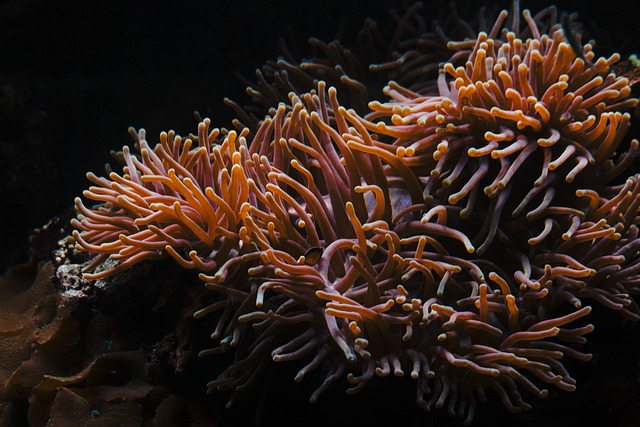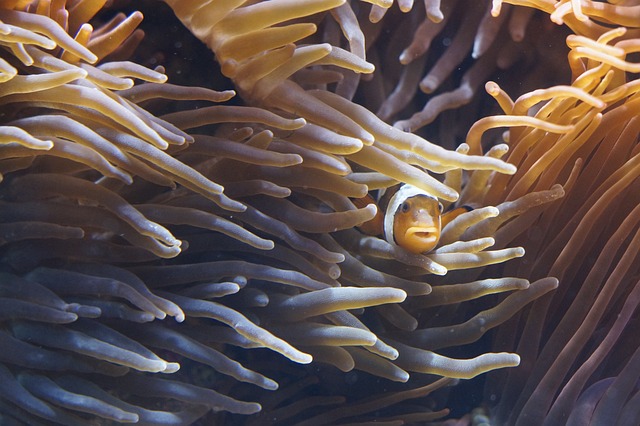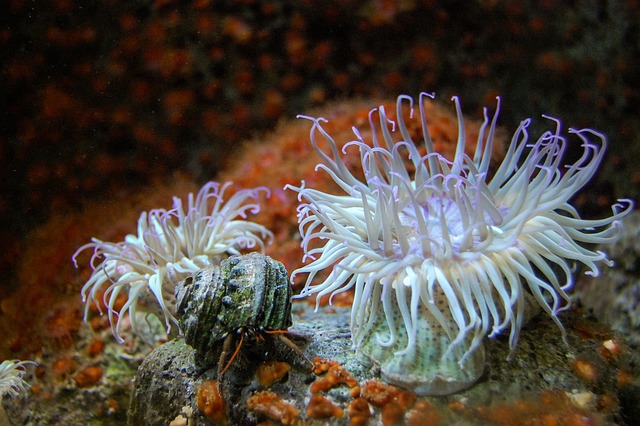It is not recommended to keep Betta fish and Clownfish together in the same aquarium.
Betta fish are aggressive towards other fish, especially those with long, flowing fins like Clownfish. Additionally, Clownfish are saltwater fish, while Betta fish are freshwater fish, so they have different water requirements and cannot thrive in the same environment.
It is important to research any fish’s compatibility and care requirements before adding them to your aquarium.
Comparing Habitats of Betta and Clownfish
Betta fish are native to the shallow waters of Thailand, Cambodia, and Vietnam. They inhabit calm, stagnant waters such as rice paddies, swamps, and slow-moving streams.
Betta fish are known for their ability to breathe air directly from the surface, which allows them to survive in oxygen-deprived environments.
They are also adapted to warm waters with temperatures ranging from 75 to 82 degrees Fahrenheit.
On the other hand, clownfish are found in the warm waters of the Pacific and Indian Oceans, particularly in coral reefs.
They are known for their symbiotic relationship with anemones, which protect them from predators. Clownfish are social creatures and live in groups of up to a dozen individuals.
Compared to betta fish, clownfish require a more complex habitat. They need a healthy coral reef ecosystem to thrive, including anemones for protection and other fish species for social interaction.
The water temperature for clownfish should be between 75 and 82 degrees Fahrenheit, similar to the preferred temperature range for betta fish.
In summary, while betta fish can survive in stagnant waters with little oxygen, clownfish require a more complex and diverse habitat to thrive.
Betta fish are solitary creatures, while clownfish are social and live in groups. These factors make it unlikely for betta fish and clownfish to coexist in the same aquarium without proper planning and consideration of their needs.
Compatibility of Betta Fish and Clownfish
Betta fish and clownfish are two popular species of fish that many aquarium enthusiasts enjoy keeping. However, it is essential to consider the compatibility of these two fish before adding them to the same tank.
Betta fish, also known as Siamese fighting fish, are known for their aggressive behavior towards other fish, especially those with long, flowing fins. On the other hand, clownfish are relatively peaceful and known for their symbiotic relationship with anemones.
In general, keeping betta fish and clownfish together in the same tank is not recommended. Betta fish are territorial and may attack the clownfish, causing stress and potentially harming both fish.
Additionally, betta fish require warmer water temperatures than clownfish, making it challenging to maintain a suitable environment for both species.
However, if a tank is large enough and has plenty of hiding places, it may be possible to keep betta fish and clownfish together. It is important to monitor their behavior closely and be prepared to separate them if necessary.
In summary, the compatibility of betta fish and clownfish is not ideal due to the aggressive behavior of betta fish and their differing temperature requirements. Keeping these species in separate tanks is recommended to ensure their health and well-being.
Potential Risks and Challenges
While betta fish and clownfish can coexist in the same tank, several potential risks and challenges should be considered before housing them together.
Firstly, betta fish are known for their aggressive behavior towards other fish, especially those with long fins. Clownfish, on the other hand, are relatively peaceful and non-aggressive. This means that there is a risk that the betta fish may attack and injure the clownfish, which could lead to stress, infection, or even death.
Secondly, betta fish require specific water conditions to thrive, including warm, clean, and well-oxygenated water.
Clownfish, on the other hand, are more tolerant of a broader range of water conditions. This means that the betta fish may become stressed or sick if the water quality is not maintained at a high level, which could lead to a weakened immune system and increased susceptibility to disease.
Finally, betta fish are solitary creatures that prefer to live alone. Clownfish, on the other hand, are social animals that live in groups or pairs.
This means that the betta fish may become stressed or agitated if housed with other fish, leading to decreased quality of life and increased susceptibility to disease.
In summary, while betta fish and clownfish can live together, several potential risks and challenges should be carefully considered before housing them together.
It is essential to provide the betta fish with a suitable environment that meets their specific needs and to monitor their behavior closely to ensure that they are not becoming stressed or aggressive towards other fish in the tank.
Alternative Aquarium Companions for Betta and Clownfish
While betta fish and clownfish can live together, it is important to consider other compatible fish species that can coexist in the same aquarium. Here are some alternative aquarium companions for betta and clownfish:
- Guppies: These small, colorful fish are peaceful and can add color to your aquarium. They also have a diet similar to betta fish and clownfish, making feeding time more manageable.
- Corydoras: These bottom-dwelling fish are peaceful and can help keep the aquarium clean by eating leftover food and debris. They are also compatible with both betta fish and clownfish.
- Neon Tetras: These small, bright fish are known for their vibrant colors and can add a unique touch to your aquarium. They are also peaceful and can coexist with betta fish and clownfish.
- Cherry Shrimp: These tiny shrimp can add a unique dynamic to your aquarium and help keep it clean by eating algae and leftover food. They are also peaceful and can coexist with both betta fish and clownfish.
It is essential to research each fish species thoroughly and ensure they are compatible with your betta fish and clownfish before adding them to the same aquarium. It is also essential to provide enough space and hiding places for each fish to avoid territorial conflicts.
Conclusion
In conclusion, it is not recommended to keep betta fish with clownfish. While some may argue it is possible, the potential risks outweigh the benefits. Betta fish are known for their aggressive behavior and may attack the clownfish, causing harm or even death. Additionally, betta fish require specific water conditions and may not thrive in the same environment as clownfish.
It is important to consider the needs and behaviors of each species before introducing them to the same tank. While some fish may seem compatible, it is crucial to research and understand their requirements. This will ensure the health and well-being of all fish in the tank.
Overall, it is best to keep betta fish and clownfish in separate tanks to prevent any potential conflicts or harm to the fish.

